Go Lean Commentary
 The Year 2018 is now over, and what an impactful year it has been. In fact, an analysis over the annals of time shows that all years ending in “8” seems to be impactful, especially in the last 100 years. We are truly able to concur with the American Media (Radio and TV) tagline: “News on the 8’s“.
The Year 2018 is now over, and what an impactful year it has been. In fact, an analysis over the annals of time shows that all years ending in “8” seems to be impactful, especially in the last 100 years. We are truly able to concur with the American Media (Radio and TV) tagline: “News on the 8’s“.
This review is not just world history, but for specific events-issues-episodes that affected us in the Caribbean.
This is important … for us here and now!
The 2013 book Go Lean…Caribbean – available to download for free – serves as a roadmap for the introduction and implementation of the technocratic Caribbean Union Trade Federation (CU), for the elevation of Caribbean society – for all member-states. The book, among its 370 pages, asserts that there are important lessons for the Caribbean region to learn from a consideration of the recent history of the economics, security and governing engines of other times and places. This exercise is analogous to reaping crops from the harvest. In fact the book features formal Lessons from History as follows:
- West Indies Federation – Page 135
- Year 2008 – Page 136
- East Germany – Page 139
- Detroit – Page 140
- Indian Reservations – Page 141
- The American West – Page 142
- Egypt – Page 143
- The Bible – Page 144
- The US Constitution – Page 145
- Canada’s History – Page 146
- Caribbean Currencies – Page 149
- Nuyorican Movement – Page 303
- European Conquest of the Guianas – Page 307
And now … for consideration of the Year 2018; (the hyperlinks refer to previous blog-commentaries):
- December: The 41st US President George H.W. Bush dies The memorial and obituaries reminded the Caribbean, and the world, that reasonable accommodations for Persons with Disabilities is good for all of society.
- November: The Mid-Term Elections in the US proved the actuality of a bitter lesson in democracy: “Bad things happen when Good people do not participate (vote); the opposite of justice is not injustice; it’s apathy, indifference and inaction”. So many people that did NOT vote in 2016 came out in force for 2018, to take back the direction of their country.
- October: The UN Intergovernmental Panel on Climate Change (IPCC) released a report that we only have 12 years to adopt any Climate Change abatements, otherwise that dire consequences that have been warned and feared will be unavoidable.
- September: A girl with Caribbean heritage (a meld of Haitian and Japanese), Naomi Osaka, shocks the world and became the US Open Tennis Champion. Yes, we can … produce greatness in our region.
- August: Caribbean member-state Saint Lucia set in motion to ban Styrofoam and plastics in their sovereign territories therefore setting a model for how the rest of the Caribbean can be responsive to the realities of global pollution. Next up: we must confederate to abate Climate Change.
- July: The world celebrated 100 Years of Mandela; we, in the Caribbean, did too and should have made more of a Big Deal about it. Mandela taught us all how to co-exist with colonialism bloody past and still work towards a prosperous future with native citizens, expatriates and Direct Foreign Investors alike.
- June: Regional Tourism stewards declared that there must be regional coordination of their tourism product. This is an affirmation of the confederation quest for the Caribbean Union Trade Federation. Hurricanes always affect one part of the Caribbean region, while sparing the other parts, leaving them “open for business”. But geographic misconceptions are hurting Caribbean economies that are completely unscathed by a hurricane. This actuality cries out for regional stewardship.
- May: As related and released by a university study, there is “No Love for Puerto Rico in Life or in Death“. The American government apparatus under-counted the true counts of deaths attributed to Hurricane Maria in September 2017. This is just proof positive that PR need to divorce the US and elevate from it’s parasite status and emerge as a protégé. This is the quest of the Go Lean/CU movement.
- April: a. A Caribbean Political Leader – Senator, the Honorable Dr. Adrian Augier, a St. Lucian Economist – advocated for better outreach to the Diaspora. He lamented how most member-states adopted the lazy approach of just asking for the Diaspora’s money (investments); Dr. Augier, on the other hand, is asking for their outright return.
b. Cuba’s Raul Castro retires, thus ending the reign of a Castro in the Presidency of Cuba for the first time since 1959; though Raul remains as Chairman of the Communist Party. - March: Young students seek to change America by “Marching for their Lives“ to change gun laws and protections. This was in response to senseless shootings, one which occurred in Parkland, FL where 17 children were slain by an ex-student. One of the victims was of the Caribbean Diaspora (Jamaica) who’s parents had sought refuge in Florida from economic distress in their homeland.
- February: The movie Black Panther, casted with many Caribbean actors, proved the prospect of forging change in an African-majority society and transforming the societal engines is a cause than we can conceive, believe and achieve.
- January: From the “abundance of the heart, the mouth speaks” – this biblical proverb was validated when it was revealed that the US President Donald Trump called Haiti and other Latin American countries “shit holes”. This also vindicates the cause of the Go Lean/CU movement to reform and transform Caribbean society to not be parasites of an unappreciative America.
2018 was an impactful year indeed. This year was also fodder for comedians and satirists alike. See the VIDEO here by the Daily Show:
VIDEO – The Daily Show’s The Yearly Show 2018: Weird Trump, Things You Forgot Happened & 911 Calls – https://youtu.be/nsm9aL-7s8E
The Daily Show with Trevor Noah
Published on Dec 19, 2018 – In The Daily Show’s final show of the year, the team looks back on how weird Donald Trump was in 2018, the stories that everyone has forgotten about and all the white people who couldn’t call 911 enough.Subscribe to The Daily Show: https://www.youtube.com/channel/UCwWh…
About The Daily Show: Trevor Noah and The World’s Fakest News Team tackle the biggest stories in news, politics and pop culture. The Daily Show with Trevor Noah airs weeknights at 11/10c on Comedy Central.
- Category: Comedy
Despite the adult humor, this VIDEO was spot-on for the laughable premise of anyone expecting American leadership for global (and Caribbean) affairs. For the last 100 years, the years ending in “8” – 2018, 2008, 1998 … 1918 – have been the most impactful in modern history. Just consider the following subjective analysis; consider the News on the 8’s for the other years, here as follows:
- 2008 – Great Recession – This economic disaster imperiled the world’s economy; what’s worse is that it is still imperiling the Caribbean region even today, despite recoveries elsewhere. Why so long for us in the Caribbean to elevate our economic landscape? We are not “too big to fail” but rather “Too Small to Thrive“.
- 1998 – Clinton Impeachment – This American-only drama had a far reaching arch on the Caribbean: The Haitian eco-system resented the role of the Clinton Foundation in Haiti’s post-2010 Earthquake recovery-rebuild. The Haitian Diaspora, and many others disillusioned with the Clinton brand, took out their angst on presidential candidate Hillary Clinton … resulting in a win for the candidate Donald Trump, an anti-Caribbean actor.
- 1988 – George Bush Election was an affirmation for the continuation of policies by Ronald Reagan. These policies incentivized Caribbean citizens, especially the professional classes, to emigrate away from the homeland to US soil.
- 1978 – Jonestown, Guyana – This tragedy took place right here in the Caribbean member-state of Guyana. This evil act is on us! Have we learned? Have we reformed and transformed? Do we still tolerate a Climate of Hate? Are we overly protective of orthodoxy?
- 1968 – Olympics’ Proudest Moment & Movement – The cause for Human Rights had it biggest impact at the 1968 Mexico City Olympics. The winners of the 200 meters Track-and-Field race – including the Bronze-medal winner with Caribbean (Cuban) roots, John Carlos – shocked the world by standing in solidarity with minority civil rights around the world.
- 1958 – West Indies Federation – This attempt at integration had the potential to consolidate and confederate all the Anglo-Caribbean under a Single Market, single currency and a unified government. But despite the good intentions, this construct reflected a deficient foundation; the Federation failed 4 years later, though some remnants persist even today: i.e. BWI Airlines, University of the West Indies and the West Indies Cricket Federation.
- 1948 – a. United Nations Human Rights Declaration – The Human Rights standard we take for granted now was not always en vogue. It started in this year as a Lesson Learn from World War II.
b. Windrush Departure – This London-bound ship started the bad trend of emigration from the Caribbean homeland. - 1938 – a. Start of Jewish Persecution in Nazi Germany; this is the lesson for where Climate of Hate leads a society.
b. Joe Louis Wins Heavyweight Championship over a German, Nazi-backed boxer. This is the forerunner for Muhammad Ali and Boxing’s potential to shook the world. - 1928 – a. Birth of Mickey Mouse and the start of the Disney Empire Dream. The Black-n-White cartoon film Steamboat Willie was the start of the media enterprise. The current Orlando resort is a model for us in the Caribbean for Self-Governing Entities.
b. Penicillin – as the start of antibiotics; this meant the end to mortality for many tropical diseases; still evolving today. - 1918 – End of WW I – The Great War was the start of the End of Colonialism. At the time of this global conflict the European powers over the Caribbean included Denmark, who subsequently ceded the Virgin Islands to the US.
This commentary serves as a review of the highlights of 2018, the same as was conducted for 2017 with 2017 Review – Mr. Trump shows the ‘Wrong Way’ and for 2016 with How to make sense of 2016. But the purpose of these commentaries is not just to highlight the news, but rather to highlight the need for a new Caribbean regime, the Go Lean roadmap for the CU Trade Federation. Accepting the philosophical principle that “a crisis is a terrible thing to waste“, then there is a strong motivation to reboot, reform and transform the Caribbean eco-systems.

This is the quest of the Go Lean/CU roadmap; it features these 3 prime directives:
- Optimization of the economic engines in order to grow the regional economy to $800 Billion & create 2.2 million new jobs.
- Establishment of a security apparatus to ensure public safety and protect the resultant economic engines.
- Improve Caribbean governance to support these engines, including a separation-of-powers between the member-states and CU federal agencies.
The Go Lean book stresses that reforming and transforming the Caribbean societal engines must be a regional pursuit. This was an early motivation for the roadmap, as pronounced in the opening Declaration of Interdependence (Pages 12 – 13):
xi. Whereas all men are entitled to the benefits of good governance in a free society, “new guards” must be enacted to dissuade the emergence of incompetence, corruption, nepotism and cronyism at the peril of the people’s best interest. The Federation must guarantee the executions of a social contract between government and the governed.
xxxiii. Whereas lessons can be learned and applied from the study of the recent history of other societies, the Federation must formalize statutes and organizational dimensions to avoid the pitfalls of communities like East Germany, Detroit, Indian (Native American) Reservations, Egypt and the previous West Indies Federation. On the other hand, the Federation must also implement the good examples learned from developments/communities like New York City, Germany, Japan, Canada, the old American West and tenants of the US Constitution.
The Go Lean book provides the turn-by-turn instructions on “how” to adopt new community ethos, plus the strategies, tactics, implementations and advocacies to execute so as to reboot, reform and transform the societal engines of Caribbean society. One advocacy on Page 131 is particular is entitled 10 Ways to Make the Caribbean Better. The rationale for this advocacy is summarized well in the first tactic (Way), as follows:
Lean-in for the Caribbean Union Trade Federation (CU).
This treaty allows for the unification of the region into a single market, thereby expanding to an economy of 30 countries, 42 million people and GDP of over $800 Billion (based on 2010) figures. The mandate of the CU, (despite the references to advanced technical concepts of economic empowerment, homeland security and emergency management), is simply to make the Caribbean a better place to: a). Live b). Work and c). Play.This triple threat impacts daily Caribbean life and ultimately, our children’s future.
Yes, we can learn form the historic “8” years and from this year then make our homeland a better place to live, work and play. This quest is conceivable, believable and achievable. 🙂
Download the free e-book of Go Lean … Caribbean – now!
Sign the petition to lean-in for this roadmap for the Caribbean Union Trade Federation.



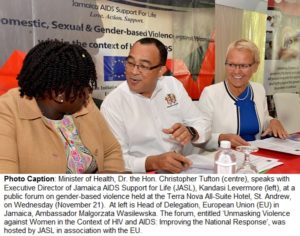
 When her mother found her after the assault, trembling and holding herself in a hallway, the 17-year-old couldn’t speak. She could only point to a metal door.
When her mother found her after the assault, trembling and holding herself in a hallway, the 17-year-old couldn’t speak. She could only point to a metal door.
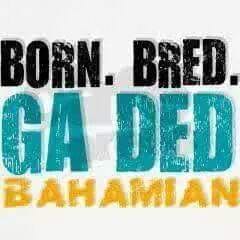 The Go Lean book provides 370-pages of turn-by-turn instructions on “how” to adopt new community ethos, plus the strategies, tactics, implementations and advocacies to execute so as to reboot, reform and transform the societal engines of Caribbean society. Dynamics of the Diaspora have been elaborated in previous blog-commentaries; see Appendix A below.
The Go Lean book provides 370-pages of turn-by-turn instructions on “how” to adopt new community ethos, plus the strategies, tactics, implementations and advocacies to execute so as to reboot, reform and transform the societal engines of Caribbean society. Dynamics of the Diaspora have been elaborated in previous blog-commentaries; see Appendix A below. Which would you rather do:
Which would you rather do:



 Technology has also pounced on the modern world, the Caribbean included; what started as a counter-culture revolution – nerds, geeks and techies – has become mainstream and normal. People today are walking around with a computer in their pockets (smart-phones) that far exceeds Big Mainframe systems (
Technology has also pounced on the modern world, the Caribbean included; what started as a counter-culture revolution – nerds, geeks and techies – has become mainstream and normal. People today are walking around with a computer in their pockets (smart-phones) that far exceeds Big Mainframe systems (

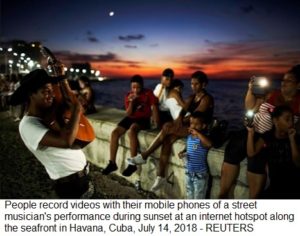
 So we went from “planning the plan” to now “planning the action”.
So we went from “planning the plan” to now “planning the action”. The Go Lean book was written 5 years ago as a 5 Year Plan to reform and transform the Caribbean region. Had the plan been adopted by the regional stakeholders, then the Agents of Change would have been better addressed. The plan, or roadmap, to introduce and implement the Caribbean Union Trade Federation is still rearing to start; and while we cannot single-handedly solve Climate Change, we can better prepare the region for the heavy-lifting involved. The book describes the community ethos to adopt plus the many strategies, tactics and implementation that need to be executed.
The Go Lean book was written 5 years ago as a 5 Year Plan to reform and transform the Caribbean region. Had the plan been adopted by the regional stakeholders, then the Agents of Change would have been better addressed. The plan, or roadmap, to introduce and implement the Caribbean Union Trade Federation is still rearing to start; and while we cannot single-handedly solve Climate Change, we can better prepare the region for the heavy-lifting involved. The book describes the community ethos to adopt plus the many strategies, tactics and implementation that need to be executed.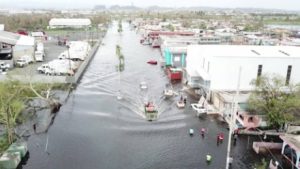
 This is an
This is an  The book scanned the landscape in the Caribbean and found a lot of deficiencies in the economics, security and governance in the region. For example, for those 5 years the movement behind the Go Lean book have been telling people that there is an overriding need for a technocratic postal solution in the Caribbean region. This is how to keep up with the demands of globalization.
The book scanned the landscape in the Caribbean and found a lot of deficiencies in the economics, security and governance in the region. For example, for those 5 years the movement behind the Go Lean book have been telling people that there is an overriding need for a technocratic postal solution in the Caribbean region. This is how to keep up with the demands of globalization.

 Imagine a Caribbean reality with flat-rate envelopes and flat-rate boxes. Imagine the automation, the robotic technologies, the scanning and sorting. The brand CPU would really be apropos – more software, e-Commerce and Internet Communications Technology – as opposed to the neighborhood mail-carrier. See this industrial shift in the related news article in the Appendix below. In fact, the company
Imagine a Caribbean reality with flat-rate envelopes and flat-rate boxes. Imagine the automation, the robotic technologies, the scanning and sorting. The brand CPU would really be apropos – more software, e-Commerce and Internet Communications Technology – as opposed to the neighborhood mail-carrier. See this industrial shift in the related news article in the Appendix below. In fact, the company 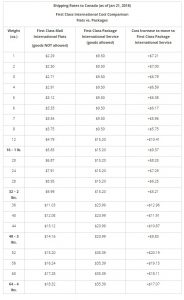

 Now is the time to ask ourselves: should the British neo-colonial status continue? Is it time to consider a formal exit?
Now is the time to ask ourselves: should the British neo-colonial status continue? Is it time to consider a formal exit?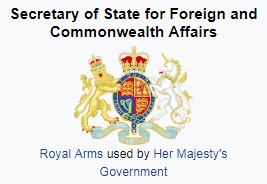
 But, these European territories (colonies) in our region are too small to effect change alone; therefore there is the need to convene, collaborate and confederate as regional neighbors. Of the total (30 member-states), there are 18 that reflect some British neo-colonial stance (overseas territory or commonwealth member). In addition there are 6 direct territories (Aruba and the 5 formerly branded
But, these European territories (colonies) in our region are too small to effect change alone; therefore there is the need to convene, collaborate and confederate as regional neighbors. Of the total (30 member-states), there are 18 that reflect some British neo-colonial stance (overseas territory or commonwealth member). In addition there are 6 direct territories (Aruba and the 5 formerly branded 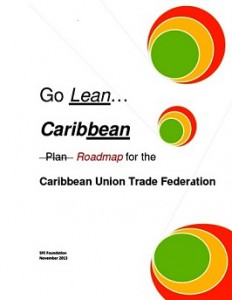

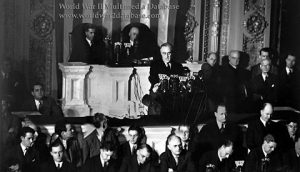 This day 77 years ago is a “day that will live in infamy”.
This day 77 years ago is a “day that will live in infamy”.



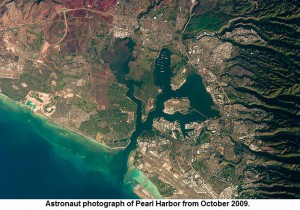


 We are being reminded of this sad reality of aging by the life-and-death of the 41st President of United States of America. At the end of his life, this able-bodied man (former war hero) was bound to a wheelchair.
We are being reminded of this sad reality of aging by the life-and-death of the 41st President of United States of America. At the end of his life, this able-bodied man (former war hero) was bound to a wheelchair.
 As related above, American society is at the matured level now in their Social Contract deliveries. They now expect the standard to be “reasonable accommodations” so that Persons with Disabilities can participate in and contribute to society. This was not always the case, and then George H.W. Bush came along and forge change in American society. This is not the standard in the Caribbean member-states … yet. But part of this reboot effort – the quest of the Go Lean roadmap – is to reform and transform the societal engines to benefit all members of the community, able-bodied or not.
As related above, American society is at the matured level now in their Social Contract deliveries. They now expect the standard to be “reasonable accommodations” so that Persons with Disabilities can participate in and contribute to society. This was not always the case, and then George H.W. Bush came along and forge change in American society. This is not the standard in the Caribbean member-states … yet. But part of this reboot effort – the quest of the Go Lean roadmap – is to reform and transform the societal engines to benefit all members of the community, able-bodied or not.